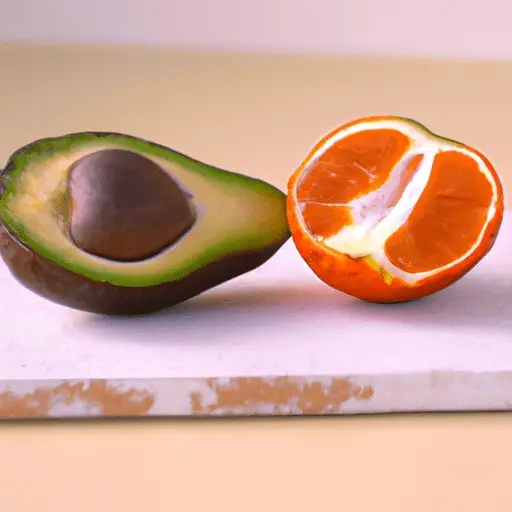-
Table of Contents
- The Relationship Between Diet and Acne
- Key Takeaways
- Introduction: Unraveling the Diet-Acne Connection
- The Role of Diet in Acne Development
- Dietary Strategies for Acne Management
- Other Factors Influencing Acne
- FAQ Section
- 1. Can diet alone cure acne?
- 2. Are all dairy products bad for acne?
- 3. Can drinking water help with acne?
- 4. Are there any foods that can help reduce acne?
- 5. Is there a link between chocolate and acne?
- Conclusion: The Complex Interplay of Diet and Acne
- Further Analysis
The Relationship Between Diet and Acne

Key Takeaways
- There is a significant correlation between diet and acne, with certain foods and nutrients contributing to the development or exacerbation of this skin condition.
- High-glycemic foods, dairy products, and saturated fats are among the dietary elements linked to acne.
- Conversely, a diet rich in fruits, vegetables, lean proteins, and whole grains can help manage and prevent acne.
- While diet plays a role in acne, it is not the sole cause. Other factors such as genetics, hormones, and stress also contribute to acne development.
- Further research is needed to fully understand the complex relationship between diet and acne, but current evidence supports the importance of a balanced diet for skin health.
Introduction: Unraveling the Diet-Acne Connection
Acne, a common skin condition affecting millions worldwide, has long been associated with diet. While the link between the two is complex and multifaceted, emerging research suggests that what we eat can significantly influence the health and appearance of our skin. This article delves into the relationship between diet and acne, exploring the foods that exacerbate this condition and those that can help manage it.
The Role of Diet in Acne Development
Several dietary factors have been implicated in acne development. High-glycemic foods, such as white bread, pasta, and sugary drinks, can trigger hormonal fluctuations and inflammation, leading to acne. A study published in the Journal of the American Academy of Dermatology found that participants who consumed a low-glycemic diet had fewer acne lesions after 12 weeks.
Dairy products, particularly skim milk, have also been linked to acne. According to a review in the Journal of the Academy of Nutrition and Dietetics, several studies have found a positive association between dairy intake and acne, although the exact mechanism remains unclear.
Additionally, diets high in saturated and trans fats can exacerbate acne by promoting inflammation. A study in the Journal of Clinical, Cosmetic and Investigational Dermatology found that acne patients had higher intake of saturated fats compared to those without acne.
Dietary Strategies for Acne Management
While certain foods may contribute to acne, others can help manage and prevent this skin condition. A diet rich in fruits, vegetables, lean proteins, and whole grains can promote skin health. These foods are low in glycemic index and provide essential nutrients like vitamins A and E, zinc, and omega-3 fatty acids, which have anti-inflammatory and antioxidant properties beneficial for skin health.
Moreover, probiotics and prebiotics, found in foods like yogurt, kefir, and fermented vegetables, can also help manage acne. A review in the American Journal of Clinical Dermatology suggests that these beneficial bacteria can improve gut health, reduce inflammation, and subsequently alleviate acne.
Other Factors Influencing Acne
While diet plays a significant role in acne, it is not the sole cause. Genetics, hormones, stress, and environmental factors also contribute to acne development. Therefore, a comprehensive approach, including a balanced diet, regular exercise, adequate sleep, and proper skincare, is essential for managing this condition.
FAQ Section
1. Can diet alone cure acne?
No, diet alone cannot cure acne. While a healthy diet can help manage and prevent acne, other factors such as genetics, hormones, and stress also play a role. Therefore, a comprehensive approach is necessary for acne management.
2. Are all dairy products bad for acne?
Not all dairy products are bad for acne. While some studies have found a link between dairy intake and acne, particularly with skim milk, the evidence is not conclusive. If you suspect dairy is triggering your acne, it may be worth discussing with a healthcare provider or a dietitian.
3. Can drinking water help with acne?
Drinking adequate water can support overall health, including skin health. However, there’s no direct evidence to suggest that drinking water alone can prevent or treat acne.
4. Are there any foods that can help reduce acne?
Yes, foods rich in antioxidants, omega-3 fatty acids, and zinc, such as fruits, vegetables, lean proteins, and whole grains, can help manage and prevent acne. Probiotics and prebiotics may also be beneficial.
5. Is there a link between chocolate and acne?
The link between chocolate and acne is controversial. Some studies suggest a possible connection, particularly with milk chocolate, while others find no association. More research is needed to clarify this relationship.
Conclusion: The Complex Interplay of Diet and Acne
The relationship between diet and acne is complex and multifaceted. While certain foods and nutrients can contribute to acne development, others can help manage and prevent this skin condition. However, diet is not the sole cause of acne, and a comprehensive approach is necessary for its management. Further research is needed to fully understand this complex relationship, but the current evidence underscores the importance of a balanced diet for skin health.
You need to add an API key in plugin settings for this feature to work.Further Analysis
In conclusion, the key takeaways from this article are:
- Diet plays a significant role in acne development and management.
- High-glycemic foods, dairy products, and saturated fats can exacerbate acne.
- A diet rich in fruits, vegetables, lean proteins, and whole grains can help manage and prevent acne.
- Other factors such as genetics, hormones, and stress also contribute to acne development.
- Further research is needed to fully understand the complex relationship between diet and acne.

